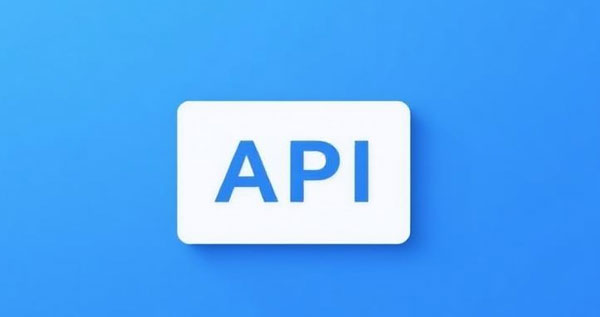Unlimited Residential Proxies: In-Depth Analysis of Features, Advantages, and Use Cases
1. Introduction: What Are Unlimited Residential Proxies?
In today’s digital landscape, proxy services play a vital role in online privacy, data collection, and market analysis. Residential proxies are particularly valuable due to their high anonymity and use of real IP addresses. Unlimited Residential Proxies, which offer unlimited bandwidth and unrestricted access, take this capability even further by enabling large-scale web operations without data limitations.
These proxies allow users to conduct long-term web scraping, market research, SEO monitoring, and social media management without worrying about bandwidth restrictions. In this article, we will provide an in-depth analysis of Unlimited Residential Proxies, covering their technical characteristics, advantages, use cases, and how to choose the right service provider.
2. Understanding Residential Proxies
2.1 What Are Residential Proxies?
Residential proxies are proxy services that provide real IP addresses assigned by ISPs (Internet Service Providers) to regular users. Unlike data center proxies, which rely on cloud-based or virtual IPs, residential proxies offer higher trust levels because they originate from real users’ devices.
Since these IPs are associated with genuine locations and ISPs, they make web browsing appear more natural and reduce the risk of getting flagged or blocked by websites.
2.2 Key Features of Unlimited Residential Proxies
Unlimited Bandwidth – No data limits, making them suitable for large-scale web scraping and automation.
Rotating IPs – IPs change dynamically to prevent blocking.
Global Coverage – Users can choose from different locations worldwide for unrestricted access.
High Anonymity – Protects users’ real identities and enhances privacy.
These features make Unlimited Residential Proxies an ideal choice for web crawling, e-commerce data monitoring, SEO tracking, and social media management.
3. Key Advantages of Unlimited Residential Proxies
3.1 Ideal for High-Traffic Applications
Traditional residential proxies may impose bandwidth limits or charge additional fees. Unlimited Residential Proxies, on the other hand, allow businesses to perform extensive data collection and analysis without worrying about bandwidth caps. This is particularly useful for companies running web scraping tools for long durations.
3.2 Reduced Risk of IP Blocking
Because residential proxies use real users’ IPs, websites are less likely to block them. Furthermore, unlimited residential proxies automatically rotate IPs, ensuring continuous website access. Even if some IPs get blocked, the proxy service quickly switches to a new IP to maintain operations.
3.3 Flexibility and Scalability
Businesses can choose proxy IPs based on their location needs.
They support API integration, making it easy to incorporate into existing systems.
Provide stable and fast connections, suitable for long-term applications.
4. Use Cases: When to Use Unlimited Residential Proxies?
4.1 E-Commerce Price Monitoring and Market Research
Track product prices and discount trends across major e-commerce platforms like Amazon, eBay, and Walmart.
Analyze competitor pricing strategies to optimize market positioning.
4.2 Ad Verification
Ensure that digital ads appear correctly in front of the target audience.
Detect fraudulent ad clicks and improve ad budget efficiency.
4.3 SEO Monitoring and Web Analytics
Track search engine rankings across different locations.
Analyze competitor SEO strategies and keyword performance.
4.4 Social Media Management
Help businesses manage multiple social media accounts without IP restrictions.
Monitor regional social media trends to boost brand influence.
4.5 Online Security and Anonymous Browsing
Provide high anonymity browsing, preventing tracking and data leaks.
Assist security researchers in penetration testing and network security analysis.
5. How to Choose the Right Unlimited Residential Proxy Service?
5.1 Evaluate Network Coverage
Does the provider offer global IP coverage?
Can users select specific countries, states, or cities?
5.2 Assess Stability and Speed
Are the IP connections stable?
Does the provider offer high-speed, low-latency data transmission?
5.3 Security and Privacy Protection
Does the provider comply with data privacy laws?
Are the proxies truly anonymous to ensure security?
5.4 API Integration
Does the service support Python, Java, Go, Shell, and other languages?
Is the integration easy to use with existing systems?
5.5 Pricing and Flexibility
Does the provider offer affordable pricing plans?
Are trial options available to test proxy performance?
6. Implementation Example: Using Unlimited Residential Proxy in Python
Below is an Unlimited Residential Proxy code example provided by LuckData, demonstrating how to make network requests using a proxy:
import requests# Set up LuckData proxy
proxy_ip = "http://Account:Password@ahk.luckdata.io:Port"
url = "https://www.example.com"
proxies = {
'http': proxy_ip,
'https': proxy_ip,
}
# Send request
response = requests.get(url, proxies=proxies)
print(response.text)
This script allows users to access websites anonymously, making it suitable for data scraping, SEO monitoring, and e-commerce analysis.
7. Conclusion and Future Trends
Unlimited Residential Proxies provide the advantages of unlimited bandwidth, high anonymity, and global coverage, making them a powerful tool for various high-traffic applications.
In the future, as data analytics, AI, and cybersecurity needs grow, residential proxy services will evolve further, offering more intelligent and efficient solutions. Businesses should carefully assess speed, coverage, security, and cost to select the best proxy provider for their needs.




